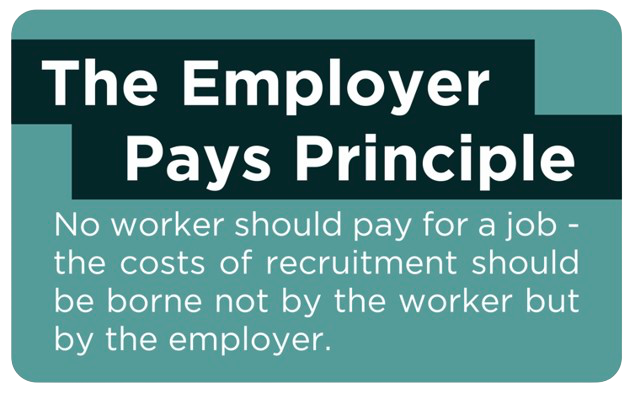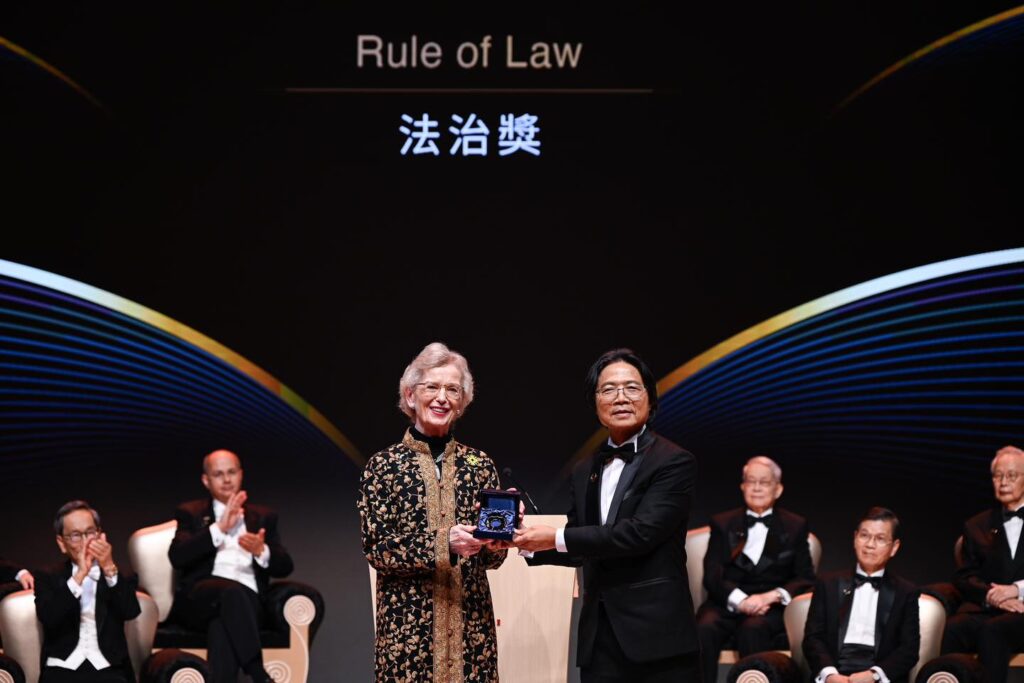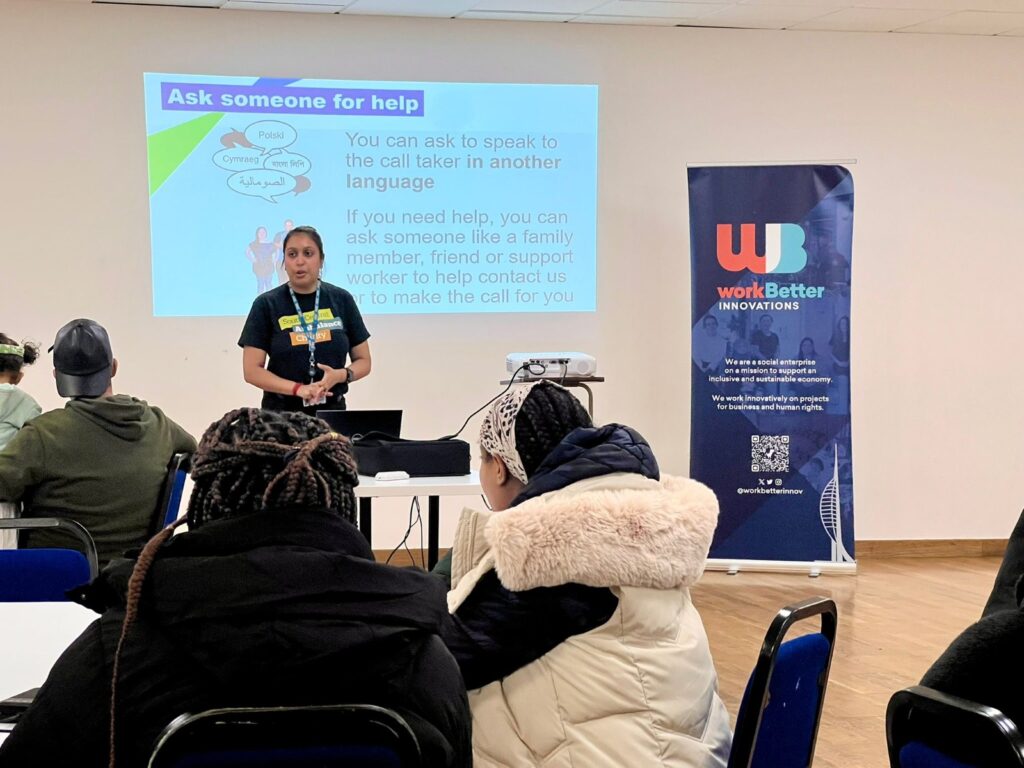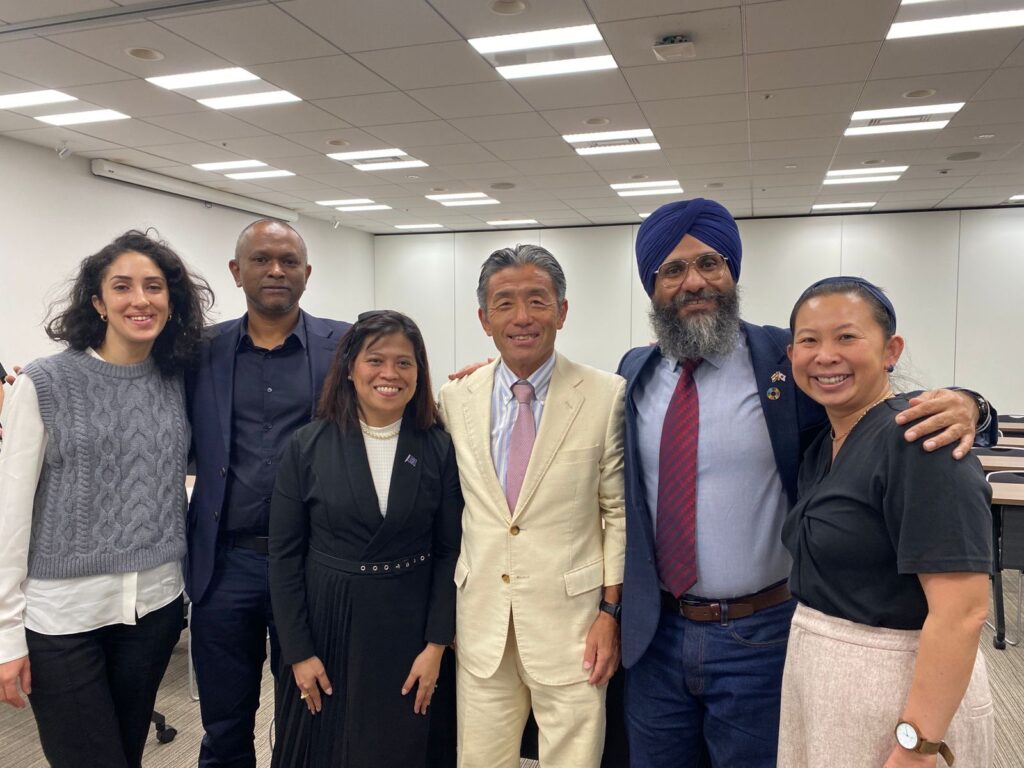5 December 2023. WBI recorded two podcasts with iLabour (鉤拳!右鉤權!吃我一記愛の勞動權!) hosted by Taiwan Labour Front on forced labour indicators as part of a series of public education on labour rights in Taiwan. We reported on the first one on the withholding of wages, here. The second one is on debt bondage; you can listen here, in Chinese.
In the episode #56, Dr. Bonny Ling, our Executive Director, started the conversation by looking back to the global history of slavery when people ‘sold’ themselves or were sold as a result of extreme poverty. These tactics existed alongside the physical abduction of slaves, as in transatlantic slavery, where slaves could be legally owned by another person.
While this form of slavery where people are sold and traded like chattel is in the past, other forms of bonded labour still exist, such as a forced labour situation where persons are working involuntarily, under a menace of penalty such as the use of violence, intimidation, or by the more subtle means of deception, manipulated debt and extortionate fees.
Recruitment Fees
Bonny started the conversation with a note on Taiwan’s past. Not long ago, during Taiwan’s rapid industrialisation during the 1970s onwards, many families also sold land, jewellery and assets to support their children studying or working abroad, expecting upward social mobility. It was not uncommon then to take out loans from formal and informal sources.The pressure to succeed was heavy.
While there are parallels with the recruitment of migrant workers today, low-wage foreign workers to Taiwan face a system of recruitment where they start on an unequal footing of no job mobility. They are tied to their job in Taiwan – by their visa condition and, also in the form of the large sum they pay to secure employment in Taiwan.
The pressure of repaying the debt means workers are less likely to complain about and leave poor working conditions. This starting point of debt places the foreign workers in a position of vulnerability and increases their risk to labour exploitation.
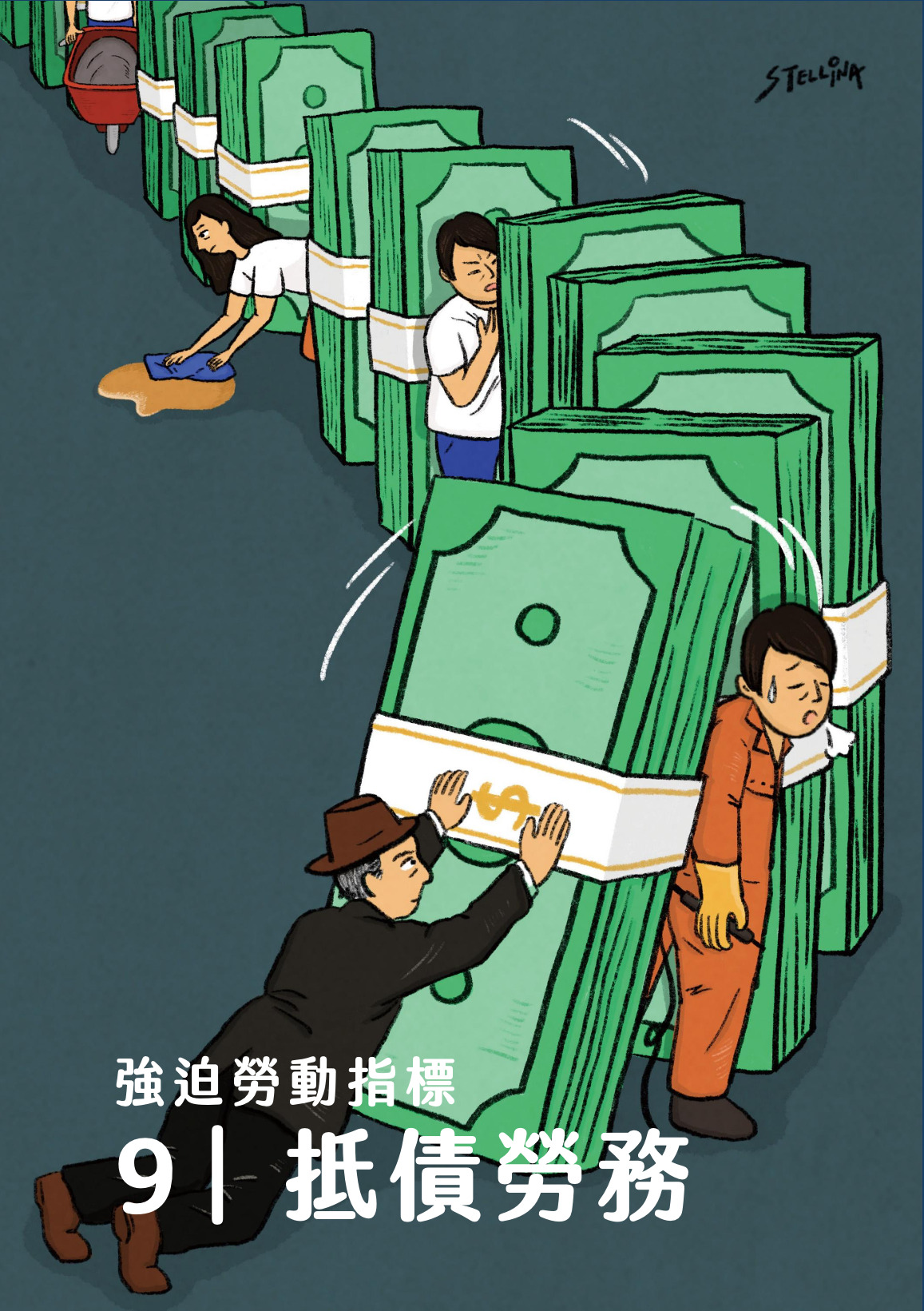 [Illustration by Stellina Chen from WBI’s bilingual Guidebook on Forced Labour Indicators for Taiwan’s SMEs]
[Illustration by Stellina Chen from WBI’s bilingual Guidebook on Forced Labour Indicators for Taiwan’s SMEs]
The Taiwanese documentary And Miles to Go Before I Sleep focuses on the life of Nguyen Quoc Phi, a Vietnamese migrant worker who was shot by the police in 2017. He left his employer and worked as a undocumented migrant worker. “I felt I was a slave when I came to Taiwan for the first time,” he once said.
Migrant workers worldwide can pay exorbitant and illegal recruitment fees and related costs to secure their jobs abroad. This can mean borrowing at high interest rates, which makes their debt harder to fully repay.
During the World Cup in Qatar in 2022, migrant workers from Bangladesh reportedly have paid about $1.5bn (£1.14bn) in fees, and possibly as high as $2bn, between 2011 and 2020. A Vietnamese migrant worker to Taiwan can pay as high as US$10,000 for their recruitment fees and related costs for their job in Taiwan.
Employer Pays Principle
WBI is a strong advocate for the Employer Pays Principle. Work Better Innovations joined Institute for Human Rights and Business’ (IHRB) Global Forum for Responsible Recruitment as a contributing partner at its 2023 conference in New York City. The Forum is “a thought leadership platform for accelerating the responsible recruitment of migrant workers around the world, in line with the Employer Pays Principle.”
We also have a video explainer on labour migration to Taiwan, here.
WBI will be writing more about the recruitment of migrant workers from Southeast Asia to Taiwan and to East Asia. Please look out for our research and analyses!


